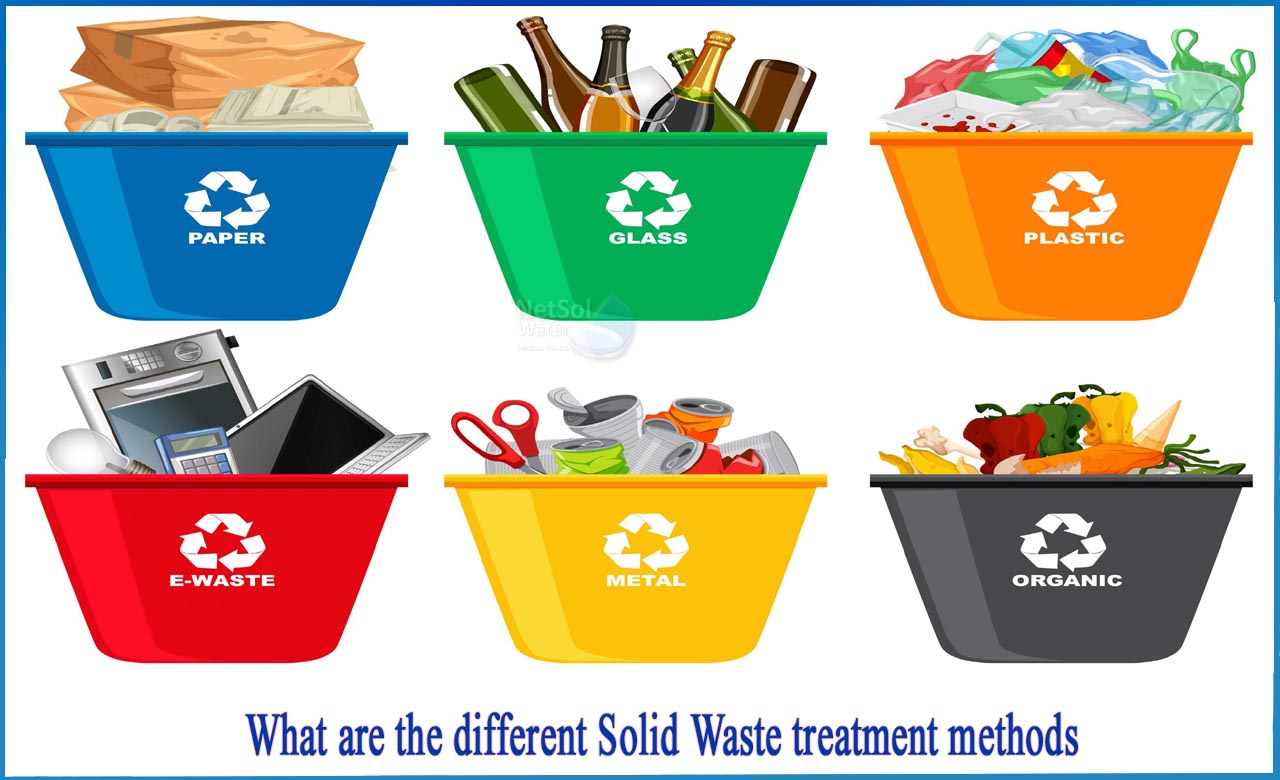What are the different Solid Waste treatment methods?
Municipal solid waste can be handled after it has been collected in order to lessen the overall volume and weight of materials that must be disposed of. Treatment alters the shape of the waste, making it easier to manage. It may also be used to recover specific materials and thermal energy for recycling or reuse.
Let us have a look on some different methods for the treatment of solid waste:
A: Incineration
Although it is a source of greenhouse gas emissions, burning is a very effective means of lowering the amount and weight of solid waste. Waste is burnt inside a well-built furnace under extremely carefully regulated circumstances in contemporary incinerators. The combustible waste reacts with oxygen, producing primarily carbon dioxide, water vapour, and heat.
Incineration can reduce the volume of uncompacted waste by more than 90% while producing bottom ash, an inert residue of ash, glass, metal, and other solid elements. The incinerator airstream carries the gaseous by-products of incomplete combustion, as well as finely fragmented particulate debris known as fly ash. Fly ash is made up of cinders, dust, and soot. In order to capture fly ash and gaseous by-products before they are released into the environment, modern incinerators must be supplied with complete emission control technologies.
Examples include fabric baghouse filters, acid gas scrubbers and electrostatic precipitators. In most cases, bottom ash and fly ash are combined and disposed of in landfills. If dangerous materials are found in the ash, it must be managed as a hazardous waste.
B: Composting
Composting is a biological process in which the organic element of municipal solid waste is allowed to decay under carefully regulated circumstances. Organic waste is metabolized by microbes, which reduces its volume by up to 50%.
Composting allows for the processing and recycling of both rubbish and sewage sludge in a single operation. It is projected to become increasingly popular as more rigorous environmental regulations and site restrictions limit the use of solid-waste incineration and disposal alternatives. Sorting and separating, size reduction, and trash digesting are all phases in the process.
C:Sanitary landfill
The most prevalent municipal solid waste management approach is land disposal. Refuse can be disposed of securely at a sanitary landfill, a disposal site that has been carefully chosen, developed, built, and maintained to preserve the environment and public health. One of the most significant aspects of landfilling is that the buried garbage is never in touch with surface or groundwater.
A minimum distance between the landfill's bottom and the seasonally high groundwater table is required in the engineering design. The bottom of most new landfills must include an impermeable liner or barrier, as well as a system of groundwater monitoring wells. To keep precipitation or surface runoff away from the buried garbage, completed landfill sections must be topped with an impermeable cover. Bottom and cap liners can be built from flexible plastic membranes, clay soil layers, or a mix of the two.
D: Recycling
Recycling is the process of separating, recovering and reusing components of solid waste that may still have economic worth. One sort of recycling is the recovery and reuse of thermal energy.
What do we have to offer?
We are pleased to introduce ourselves as leading water, wastewater treatment company in India, specializing in the manufacture of WTP, WWTP, ETP, as well as Solid waste management. Netsol Water is a one-stop utility partner for both industrial and commercial clients, helping them improve resource productivity and bottom lines while safeguarding the environment.
Please contact us at +91-9650608473 or drop a mail at enquiry@netsolwater.com for further information or to make a purchase.



